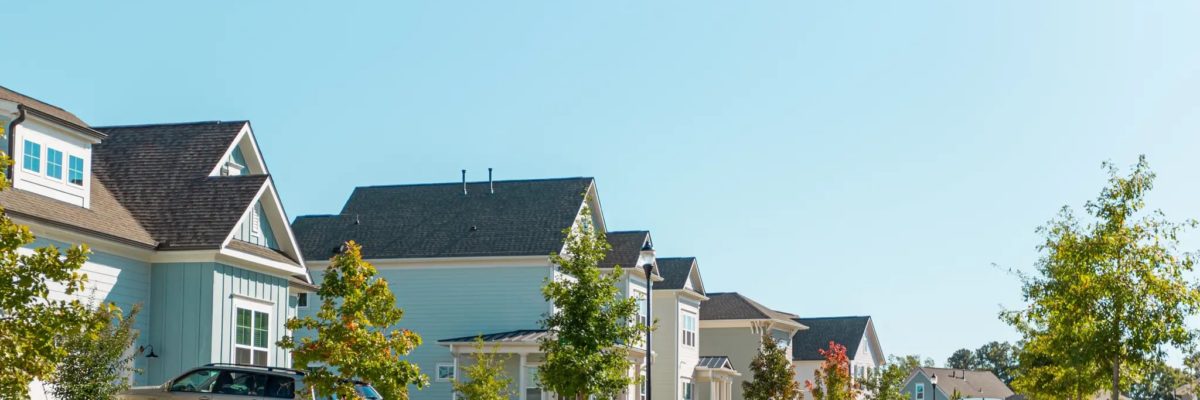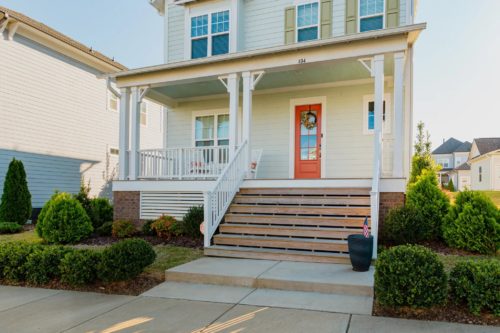- NEW-BUILD TOWNHOMES IN WAKE FOREST
- 919.804.1926

Fun Things to Do in Wake Forest During the Holidays
January 12, 2024
Join Us this April for Our Forest Fest
April 19, 2024Home Closing Costs and What to Expect

When buying a house, budgeting for more than just the down payment is important. Home closing costs can add up quickly and catch many first-time homebuyers off guard.
These costs typically range from 2-5% of the home’s purchase price but can vary depending on location and financing options. It’s essential to understand what closing costs are and how they may impact your overall budget.
What Are Closing Costs?
Closing costs are the fees and expenses of finalizing a real estate transaction. These costs cover a variety of services, such as title searches, appraisals, inspections, and legal fees. They are paid at the “closing” of a real estate transaction when the ownership of the property is transferred from the seller to the buyer.
How Much Are Closing Costs on a House in North Carolina?
The costs of closing a real estate transaction can vary significantly depending on the state, and North Carolina offers a relatively affordable option.
According to data provided by CoreLogic’s ClosingCorp, the average closing costs in North Carolina amount to approximately 1.1 percent of the sale price. This is a considerable advantage compared to Pennsylvania, where the closing costs average 4.3 percent, or even neighboring Virginia, which averages 1.7 percent.
Buyers typically incur closing costs ranging from approximately 2% to 6% of the loan amount. For instance, on a $300,000 home loan, you must allocate $6,000 to $18,000 for closing costs and the down payment. The most economical approach is to pay these costs upfront as a one-time expense.
Alternatively, you may have the option to include them in the loan, subject to the lender’s approval. But bear in mind that this would result in interest being charged on those costs throughout the mortgage term.
Who Pays Closing Costs?
Most of the closing costs fall on the buyer. But the seller has to pay some of them, too, such as the real estate agent’s commission and sometimes the real estate transfer tax.
Sellers have limitations on the amount they can contribute towards closing costs. The seller’s contribution is restricted to a specific percentage of your mortgage value, which varies depending on the type of loan, occupancy, and down payment. Below, we have provided a breakdown of the limits for seller concessions on conventional loans.
The percentage indicated is based on the lower value between the purchase price and the appraised value.
Primary Residences |
Second Homes |
| 9% for down payments of 25% or more, 6% for down payments of 10% – 24.99%, and 3% for down payments of less than 10%. | The limits are 9% for down payments of 25% or more and 6% for down payments of 10% – 24.99%. |
As for investment properties, please refer to the information provided.y, the maximum seller concession for any down payment is 2%.
How Long Does Closing a House Take?
The time it takes to finalize the purchase of a house relies on your organizational abilities, your loan officer’s experience, and the seller’s reliability. However, typically, closing a house takes approximately 30 to 45 days after you submit your mortgage loan application.
How to Budget for Home Closing Costs
When budgeting for home closing costs, it’s essential to factor in the various fees and expenses that may arise during the process. These can include:
- Appraisal fees
- Home inspection fees
- Title search and insurance
- Survey fees
- Attorney or notary fees
- Escrow fees
- Loan origination and processing fees
It’s also crucial to carefully review all the documents related to the closing costs and ask any questions you may have before signing. Additionally, be sure to compare estimates from multiple lenders to get a better understanding of what your closing costs may look like.
Buy Your Dream Home at Holding Village
Closing costs are unavoidable when buying a home, but with proper budgeting and preparation, you can minimize their impact on your overall budget.
At Holding Village, we offer various home options in our beautiful master-planned community in the heart of Wake Forest, North Carolina. Our experienced team is here to guide you through the home-buying process. Contact us today to learn more about our available homes and start your journey toward homeownership!


